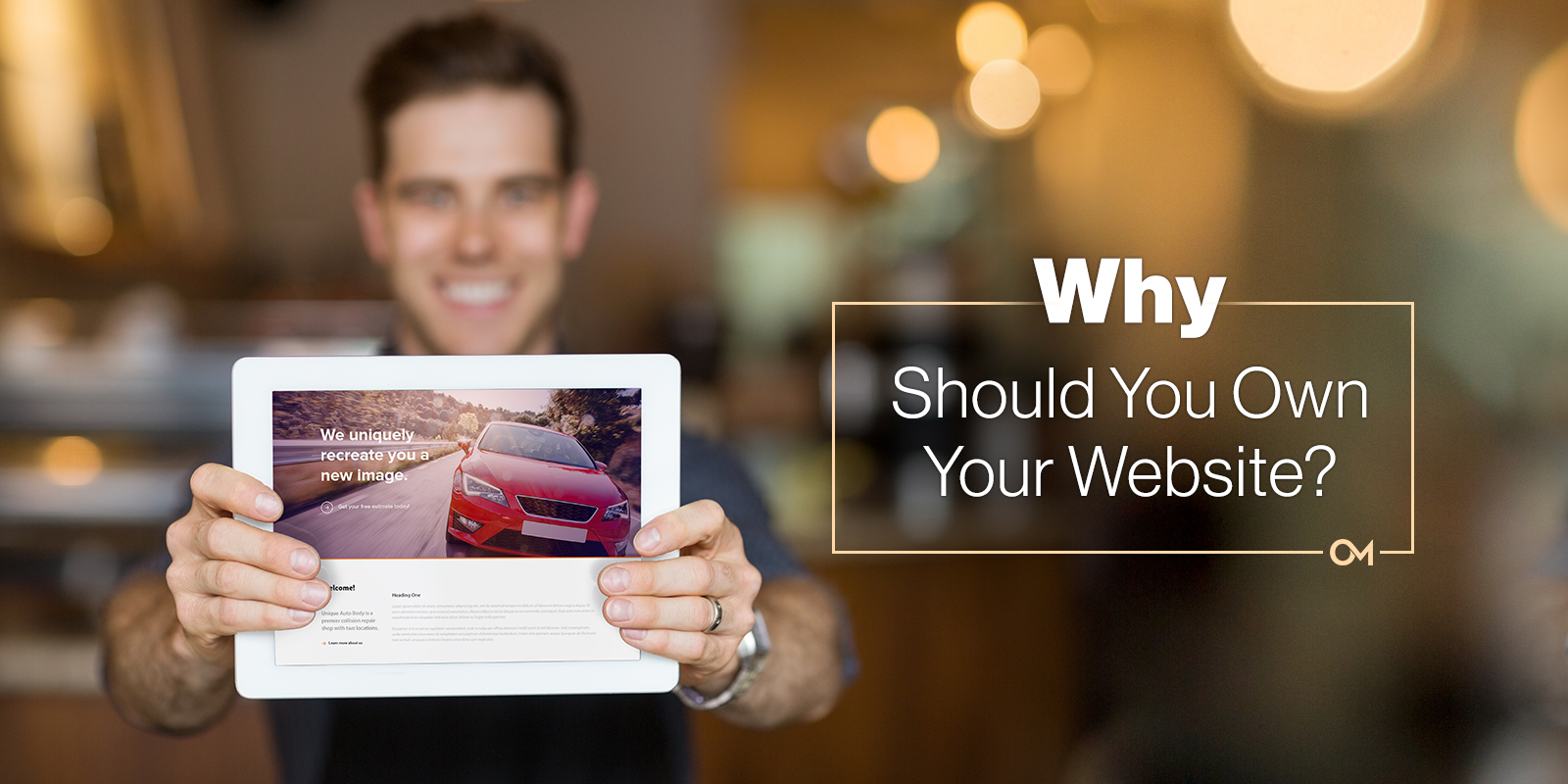Why Should You Own Your Website?

While you may not see it on the front end, every website is built using its own code. Retaining control of your website is imperative. Before choosing your website development company, ask them the essential question: Will I own the code of my site once it’s finished? If you aren’t going to own the code after the site is completed and paid for, run the other way! There are many disadvantages to not owning your website, potentially resulting in a loss of everything you’ve worked to gain: SEO ranking, content, authority, design, money spent on the site, and trust of your customers.
Once the Relationship is Done, the Site is Gone
You know the relationship is over. You’ve know it for a long time. So why can’t you just let it go? Are you afraid? Afraid they’ll key your car, take the television and kick you out of your own home? That must be what it feels like to break up with a clingy web development company.
Those who allow their web development company to own the code of their site must love to live on the edge. They’re living in a world of never knowing what the next day could bring to their website: one day up, the next it’s gone.
That’s often how these development companies keep you tied to their services. If you try and leave, they’ll take down your site, removing your number one online asset. Too often, small business owners would rather pay for a subpar service that really isn’t bringing them results rather than deal with the repercussions of breaking up with a restrictive web development company.
You Don’t Own the Domain
Some website companies will prey on business owners who don’t know the difference between the domain and the website itself. They may assure you whole heartedly that you own the website, but leave out the fact that they own the domain. To understand why this is significant, it’s important to understand the difference between a website and a domain:
- Website: The site files are what people see when going to a website. This is the text, images, and styling we understand to be the website. When people go to our website, they see a photo from our office, our tagline, our logo, case studies, portfolio, and many other aspects that make up the site.
- Domain: The domain may be even more important than the website to own, especially if you have any SEO value in your site. Domains are the way sites can be easily found, and is the part that comes before the .com. “Oozlemedia” is the domain name for our company for example. If for any reason another company owned our name, and if they decided not to allow us to use the domain any longer, we would lose any authority behind oozlemedia.com. Anyone who may have been familiar with our domain name would have a difficult time finding us online, as we would have to choose a new name that hasn’t already been taken, or beg and pay the price to the company in control of our domain.
Make sure that you have complete ownership of your domain, and that your website company doesn’t control this. If your web dev company refuses to let you purchase the domain from the start, don’t work with them. In many cases, it is better to already purchase and control your domain before beginning work with a website company.
Restrictive Templates
There’s a big difference between a site built on a restrictive template and one that is built using clean code. In most cases, you will not own the former while the latter you may have ownership. Not every website needs to be an extravagant custom built production. Building based on company owned themes can be a cheaper and quicker way for some small businesses to get their website live. However, companies should own this code, even if it’s built from an existing theme, once the site has been paid for.
How to Detect a Web Dev Company That Won’t Give You Your Code
Identify the signs of a web development company that will hold your feet to the fire if you ever try to leave. Some things to watch for include:
- Before signing any contract, just ask. Ask the company if you own the code after full payment has been made, or if they retain ownership. This one simple question can save you a lot of time, money, and frustration down the road.
- Find out if you can use your own hosting plan. There are many hosting platforms, such as GoDaddy and HostGator where your website files can be hosted. While most website companies who offer a monthly payment plan that may extend to after the site is launched require you to host your site through them during this time, be wary of those who don’t allow you to purchase your own hosting plan and move from their servers once full payment has been made. They’ll have the power to remove your site if you ever try and part ways with them down the road. Find out if you’ll have the capability to move your site to new hosting.
- Ask their current or past clients. See if you can get in contact with your web dev company’s past or current clients. Find out if they were able to move to their own hosting and own the code of their site, or if they were restricted in what they could do.
Don’t be afraid to ask the hard questions. You must own the code of your site to have the flexibility and control you need for your business’s online presence. Before committing yourself to a web development company, ask these 11 essential questions, including whether or not you’ll own the code. Ensure you have control of the code, and thus your site.
